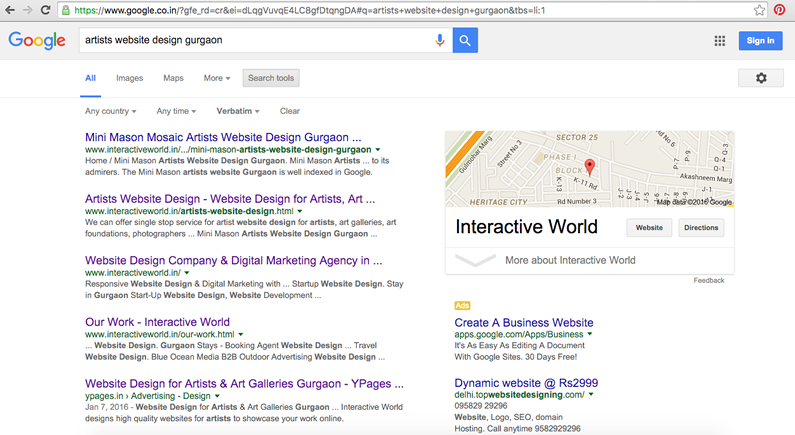
SEO Audit Factors – A Checklist
SEO audit for your website is imperative and helps you to identify gaps that prevent your website from ranking well. SEO audit should be performed routinely to ensure the health of your web enterprise.
In today’s article, I’ll detail a 9 point checklist with major on-page search engine optimization factors that are instrumental in making your on-page SEO strategy a success. My next article will cover the SEO audit factors for off-page parameters relevant for that winning SEO strategy.
Here is the 9 point SEO audit checklist:
1. Are you using title tags?
A title tag tells your visitors as well as the search engines what the page is all about. You must have a unique title for every page or blog post. If your document appears in a search results page, the contents of the title tag will usually appear in the first line of the results. Your page title needs to be contextual and you should always avoid choosing a title that has no relation to the content on the page.
2. Is your description meta tag optimized?
A well-written meta description should inform both search engines and users with a summary of what your page is about. A better-worded meta description always helps generate more clicks from your Google rankings. It goes for title tags, meta tags also need to be unique and relevant to your page’s content.
3. How good is your URL structure?
Simple to understand URLs convey content information in a user-friendly manner. URLs are displayed in the search results by SEs. Descriptive categories and filenames for your products/ documents on your website help you keep your site better organized. It also leads to better crawling of your products/ documents by search engines. Try and use relevant & contextual words (keywords) in your URLs.
4. Is your site structure & navigation friendly?
Your website should be easy to navigate and user friendly. It helps people to find relevant information easily. Always plan out your navigation starting from your homepage. Ensure more convenience for users by using ‘breadcrumbs’. Ensure you have a separate page for the product/ service you want to rank for.
5. Are you using sitemaps?
One should always create two sitemaps – one for the user (HTML) and second for SEs (XML). Sitemaps are a great way of indexing information on any website especially if it carries a lot of content. It makes the process of finding relevant information easier for both users and search engines.
6. Do you create fresh, unique content?
Fresh and unique content should always be a priority. Avoid writing sloppy content or embedding text in images for textual content. This makes it difficult for users to copy and save it for future reference. It also makes it unreadable for search engines. Remember new content not only brings back your regular readers but also bring in new visitors. Write for your users and not search engines. Search engines automatically follow websites with fresh, rich content. If your business exists online, consider writing your blog.
7. Are you optimizing your images?
Use the “alt” tag to provide image-specific information. This component of SEO audit comes in handy when the image is not displayed for some reason or the user is accessing your page from a screen reader or a browser that doesn’t support images. Your image file name should also have the same image-specific information.
8. Are you using heading tags appropriately?
Heading tags (H1, H2, H3 etc.) are visual cues to your website visitors. They suggest the importance of that part of the text. This helps them understand something about the type of content underneath the heading text. Multiple heading sizes should be used in order to create a hierarchical structure for your content. This makes it easier for users to navigate through your document.
9. Is your website is responsive?
The world has gone mobile, with many people using mobile phones on a daily basis for accessing and searching via the internet. Responsive websites deliver a consistent, professional, and enjoyable user experience across devices with different screen resolutions. This encompasses all devices including desktop computers, tablets and smartphones. Google gives a lot of priority to websites that are responsive.
We, at Interactive World routinely conduct an SEO audit before taking on any SEO project. This audit is a key indicator of the factors holding your website back from achieving the organic search rankings it is capable of. Our SEO audit looks at your website holistically viz. different ranking factors, from your website’s loading speed to crawl errors, on-page optimisation and technical elements that you may not be aware of. Talk to us today for a free initial report.

Great Article on SEO audit
Thank you Ajay